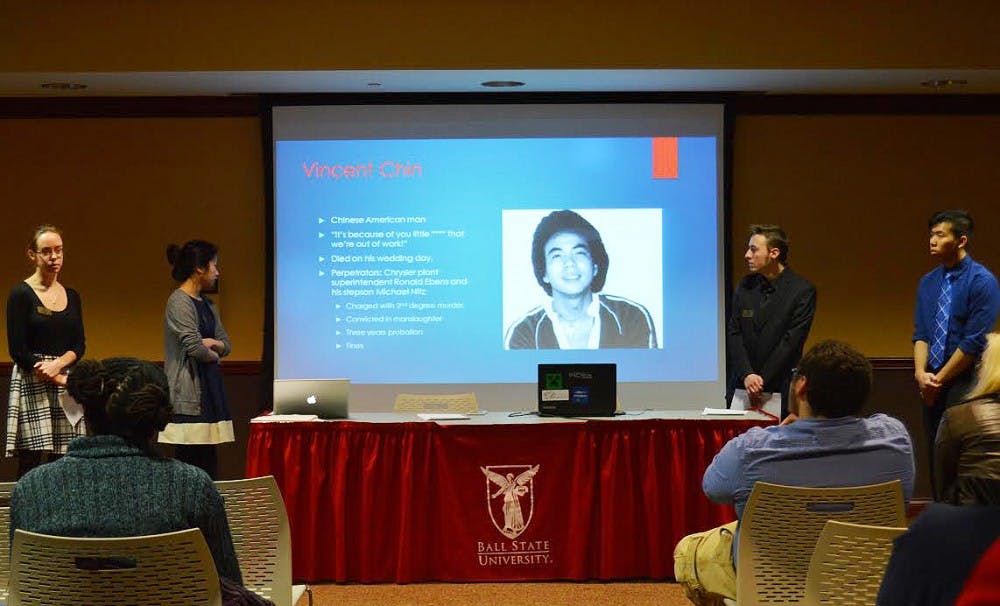The Federal Bureau of Investigation's most recent report on hate crimes shows that law enforcement agencies submitted incident reports involving 5,479 criminal incidents and 6,418 offenses motivated by bias toward race, gender, gender identity, religion, disability, sexual orientation and ethnicity in 2014, according to a press release.
Because this issue often goes undiscussed, Spectrum and the Asian American Student Association came together on Jan. 19 to educate students about hate crimes.
Students watched the documentary, ”Who Killed Vincent Chin.” The film recounted the 1982 murder of Vincent Chin, a Chinese-American automotive engineer mistaken as Japanese. Chin was beaten to death by a baseball bat in Detroit by an assembly line worker who blamed him for the competition by the Japanese auto makers that were threatening his job, according to imdb.com.
“The attack on Vincent Chin is considered by many a hate crime and there is still controversy surrounding the case which is why we chose this film,” said AASA Vice President Jenny Lee. “We believe that is it important to have those difficult conversations regarding discrimination and prejudice. Oftentimes, people are unaware of what each thing is and confuse one with the other. Likewise, hate crimes are relatively not discussed. Hate crimes are problems that not only affect individuals but an entire community.”
A hate crime is one that manifests evidence that the victim was intentionally selected because of the perpetrator’s bias against the victim in the categories of the victims’ actual or perceived race, religion, gender, gender identity, sexual orientation, ethnicity, national origin and disability, according to Ball State’s 2015 Campus Security Report.
The report, which dates back to 2012, does not show of any student reports related to hate crimes.
The FBI said while a hate crime is not a distant federal offense, the federal government can and does investigate and prosecute crimes of bias as civil rights violations, which do fall under its jurisdiction.
Hate crimes have devastating impacts on families and communities, and those who preach hatred and intolerance plant the seeds of terrorism in the U.S., according to fbi.gov.
Hate crimes have been a prevalent issue within our society’s history, said Aminta Cabera, a sophomore psychology and drawing major who attended the event.
“Hate crimes are an issue and have been throughout history,” said Cabrera. “We have to stand up to those who are oppressing and discriminating or nothing will change. We have to make people stop thinking that this is okay.”
One way to bring justice and light to these issues is through conversation, Lee said.
“People can make a difference by having those tough conversations," Lee said. "Understanding that something is wrong and making an action to change it. It should not require a tragedy to promote change.”
To report a hate crime on campus, contact university police.





